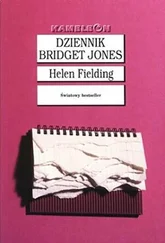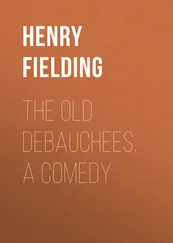Henry Fielding - History of Tom Jones, a Foundling
Здесь есть возможность читать онлайн «Henry Fielding - History of Tom Jones, a Foundling» — ознакомительный отрывок электронной книги совершенно бесплатно, а после прочтения отрывка купить полную версию. В некоторых случаях можно слушать аудио, скачать через торрент в формате fb2 и присутствует краткое содержание. Жанр: foreign_prose, foreign_antique, на английском языке. Описание произведения, (предисловие) а так же отзывы посетителей доступны на портале библиотеки ЛибКат.
- Название:History of Tom Jones, a Foundling
- Автор:
- Жанр:
- Год:неизвестен
- ISBN:нет данных
- Рейтинг книги:4 / 5. Голосов: 1
-
Избранное:Добавить в избранное
- Отзывы:
-
Ваша оценка:
- 80
- 1
- 2
- 3
- 4
- 5
History of Tom Jones, a Foundling: краткое содержание, описание и аннотация
Предлагаем к чтению аннотацию, описание, краткое содержание или предисловие (зависит от того, что написал сам автор книги «History of Tom Jones, a Foundling»). Если вы не нашли необходимую информацию о книге — напишите в комментариях, мы постараемся отыскать её.
History of Tom Jones, a Foundling — читать онлайн ознакомительный отрывок
Ниже представлен текст книги, разбитый по страницам. Система сохранения места последней прочитанной страницы, позволяет с удобством читать онлайн бесплатно книгу «History of Tom Jones, a Foundling», без необходимости каждый раз заново искать на чём Вы остановились. Поставьте закладку, и сможете в любой момент перейти на страницу, на которой закончили чтение.
Интервал:
Закладка:
“I am afraid it is too common, indeed,” answered the parson; “but I thought the whole story altogether deserved commemorating. As to national matters, your worship knows them best. My concerns extend no farther than my own parish.”
“Why, ay,” says the squire, “I believe I do know a little of that matter, as you say. But, come, Tommy, drink about; the bottle stands with you.”
Tom begged to be excused, for that he had particular business; and getting up from table, escaped the clutches of the squire, who was rising to stop him, and went off with very little ceremony.
The squire gave him a good curse at his departure; and then turning to the parson, he cried out, “I smoke it: I smoke it. Tom is certainly the father of this bastard. Zooks, parson, you remember how he recommended the veather o’ her to me. D – n un, what a sly b – ch ‘tis. Ay, ay, as sure as two-pence, Tom is the veather of the bastard.”
“I should be very sorry for that,” says the parson.
“Why sorry,” cries the squire: “Where is the mighty matter o’t? What, I suppose dost pretend that thee hast never got a bastard? Pox! more good luck’s thine? for I warrant hast a done a therefore many’s the good time and often.”
“Your worship is pleased to be jocular,” answered the parson; “but I do not only animadvert on the sinfulness of the action – though that surely is to be greatly deprecated – but I fear his unrighteousness may injure him with Mr Allworthy. And truly I must say, though he hath the character of being a little wild, I never saw any harm in the young man; nor can I say I have heard any, save what your worship now mentions. I wish, indeed, he was a little more regular in his responses at church; but altogether he seems
Ingenui vultus puer ingenuique pudoris.
That is a classical line, young lady; and, being rendered into English, is, `a lad of an ingenuous countenance, and of an ingenuous modesty;’ for this was a virtue in great repute both among the Latins and Greeks. I must say, the young gentleman (for so I think I may call him, notwithstanding his birth) appears to me a very modest, civil lad, and I should be sorry that he should do himself any injury in Squire Allworthy’s opinion.”
“Poogh!” says the squire: “Injury, with Allworthy! Why, Allworthy loves a wench himself. Doth not all the country know whose son Tom is? You must talk to another person in that manner. I remember Allworthy at college.”
“I thought,” said the parson, “he had never been at the university.”
“Yes, yes, he was,” says the squire: “and many a wench have we two had together. As arrant a whore-master as any within five miles o’un. No, no. It will do’n no harm with he, assure yourself; nor with anybody else. Ask Sophy there – You have not the worse opinion of a young fellow for getting a bastard, have you, girl? No, no, the women will like un the better for’t.”
This was a cruel question to poor Sophia. She had observed Tom’s colour change at the parson’s story; and that, with his hasty and abrupt departure, gave her sufficient reason to think her father’s suspicion not groundless. Her heart now at once discovered the great secret to her which it had been so long disclosing by little and little; and she found herself highly interested in this matter. In such a situation, her father’s malapert question rushing suddenly upon her, produced some symptoms which might have alarmed a suspicious heart; but, to do the squire justice, that was not his fault. When she rose therefore from her chair, and told him a hint from him was always sufficient to make her withdraw, he suffered her to leave the room, and then with great gravity of countenance remarked, “That it was better to see a daughter over-modest than over-forward;” – a sentiment which was highly applauded by the parson.
There now ensued between the squire and the parson a most excellent political discourse, framed out of newspapers and political pamphlets; in which they made a libation of four bottles of wine to the good of their country: and then, the squire being fast asleep, the parson lighted his pipe, mounted his horse, and rode home.
When the squire had finished his half-hour’s nap, he summoned his daughter to her harpsichord; but she begged to be excused that evening, on account of a violent head-ache. This remission was presently granted; for indeed she seldom had occasion to ask him twice, as he loved her with such ardent affection, that, by gratifying her, he commonly conveyed the highest gratification to himself. She was really, what he frequently called her, his little darling, and she well deserved to be so; for she returned all his affection in the most ample manner. She had preserved the most inviolable duty to him in all things; and this her love made not only easy, but so delightful, that when one of her companions laughed at her for placing so much merit in such scrupulous obedience, as that young lady called it, Sophia answered, “You mistake me, madam, if you think I value myself upon this account; for besides that I am barely discharging my duty, I am likewise pleasing myself. I can truly say I have no delight equal to that of contributing to my father’s happiness; and if I value myself, my dear, it is on having this power, and not on executing it.”
This was a satisfaction, however, which poor Sophia was incapable of tasting this evening. She therefore not only desired to be excused from her attendance at the harpsichord, but likewise begged that he would suffer her to absent herself from supper. To this request likewise the squire agreed, though not without some reluctance; for he scarce ever permitted her to be out of his sight, unless when he was engaged with his horses, dogs, or bottle. Nevertheless he yielded to the desire of his daughter, though the poor man was at the same time obliged to avoid his own company (if I may so express myself), by sending for a neighbouring farmer to sit with him.
Chapter xi. – The narrow escape of Molly Seagrim, with some observations for which we have been forced to dive pretty deep into nature
Tom Jones had ridden one of Mr Western’s horses that morning in the chase; so that having no horse of his own in the squire’s stable, he was obliged to go home on foot: this he did so expeditiously that he ran upwards of three miles within the half-hour.
Just as he arrived at Mr Allworthy’s outward gate, he met the constable and company with Molly in their possession, whom they were conducting to that house where the inferior sort of people may learn one good lesson, viz., respect and deference to their superiors; since it must show them the wide distinction Fortune intends between those persons who are to be corrected for their faults, and those who are not; which lesson if they do not learn, I am afraid they very rarely learn any other good lesson, or improve their morals, at the house of correction.
A lawyer may perhaps think Mr Allworthy exceeded his authority a little in this instance. And, to say the truth, I question, as here was no regular information before him, whether his conduct was strictly regular. However, as his intention was truly upright, he ought to be excused in foro conscientiae ; since so many arbitrary acts are daily committed by magistrates who have not this excuse to plead for themselves.
Tom was no sooner informed by the constable whither they were proceeding (indeed he pretty well guessed it of himself), than he caught Molly in his arms, and embracing her tenderly before them all, swore he would murder the first man who offered to lay hold of her. He bid her dry her eyes and be comforted; for, wherever she went, he would accompany her. Then turning to the constable, who stood trembling with his hat off, he desired him, in a very mild voice, to return with him for a moment only to his father (for so he now called Allworthy); for he durst, he said, be assured, that, when he had alledged what he had to say in her favour, the girl would be discharged.
Читать дальшеИнтервал:
Закладка:
Похожие книги на «History of Tom Jones, a Foundling»
Представляем Вашему вниманию похожие книги на «History of Tom Jones, a Foundling» списком для выбора. Мы отобрали схожую по названию и смыслу литературу в надежде предоставить читателям больше вариантов отыскать новые, интересные, ещё непрочитанные произведения.
Обсуждение, отзывы о книге «History of Tom Jones, a Foundling» и просто собственные мнения читателей. Оставьте ваши комментарии, напишите, что Вы думаете о произведении, его смысле или главных героях. Укажите что конкретно понравилось, а что нет, и почему Вы так считаете.












